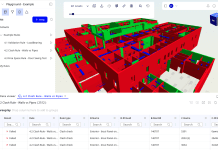All jobs and trades inevitably change with the times, and in doing so, the required skills are subject to change over the years
For example, with the construction industry embracing faster and more accurate methods of planning and building through the use of structure design software, there is a clear need for engineers and builders to stay up-to-date with programming skills. But just how far will this shift from physical labour to digital skills go?
Will robots take our jobs?
It’s a long-standing fear that machines will take everyone’s jobs away, but it isn’t that simple. Technology will not steal our jobs, but just replace us as we shift roles. But how will this impact the construction industry? To understand, we need to have an oversight on statistics that have been released regarding this issue.
Around 25% of jobs will be replaced by smart software by 2025, says Boston Consulting Group. This includes a range of professions, from factory workers to doctors, and even journalists. However, a study carried out by Oxford University has said that 35% of existing jobs and trades in Britain are at risk of automation in the next 20 years.
When it comes to the reduction of physical workers, it is difficult to say. However, this can be challenged if we start preparing early and encourage current and future workers to adapt to the changes. This could include advancing their own skillset with a focus on how they can do their job better with the use of technology.
Construction is evolving
Of course, even with technology picking up some elements of work, machines need people to run and maintain them. It’s often left unmentioned that workers will need to use technology, and that leads us to the decision that in the construction industry, builders of the future will become programmers. Over the years, we have seen constant changes in the way we work, and the construction sector has been very accepting to new and innovative methods to make jobs easier. From hammers to nail guns, shovels to diggers — and now practical labour to programming.
This will not be a quick change. Programming is a topic that schools around the UK should be looking to implement into their curriculums as a core subject to keep up with the demand of jobs and to keep up with the constant changes in technology. If we’re teaching young people old ways, they will be useless when it comes to doing the work and there might not even be jobs available that match their skillsets. With the constant growth in technology surrounding construction, young people need to be prepared with the skills and this shouldn’t be up for debate. Like the studies discussed earlier, more jobs and trades are at risk of being lost due to smart software and robots. Workers need to be as good as the technology.
Let’s look at the benefits of the technology in this sector. When it comes to a common piece of software that is used in construction, Building Information Modelling (BIM) is an element that can be beneficial, as it allows the appropriate people to access all of the information about a project in one place. It can look at key stages of a project across the lifecycle of a job and provide the information that is needed. This can save both time and money for any construction company and allows builders to have a clear oversight. BIM can help illustrate the entire building, from starting processes to its demolition, and can even show how materials can be reused.
It’s not a case of technology taking people’s jobs, rather, that jobs are changing. In order to keep up, it is critical for workers to push to develop new skills.
Sources:
http://www.bbc.co.uk/news/technology-33327659
https://www.theguardian.com/technology/2016/mar/19/robot-based-economy-san-francisco
Amy Hodgetts














